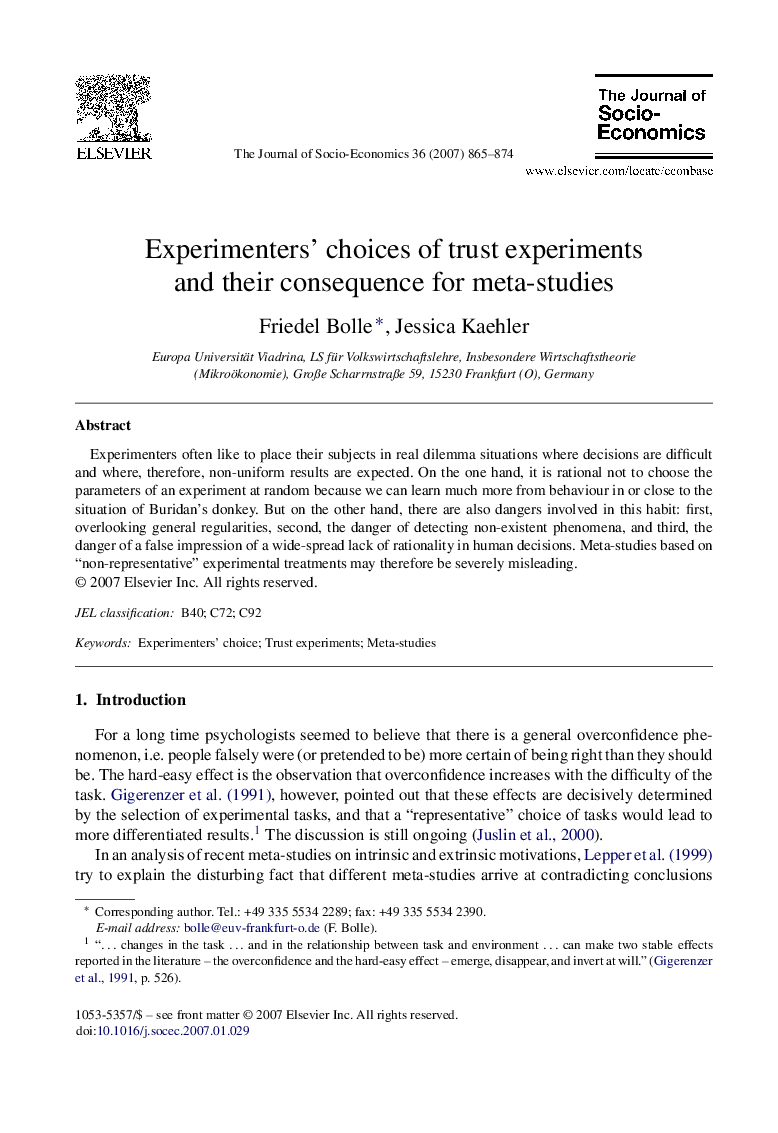| Article ID | Journal | Published Year | Pages | File Type |
|---|---|---|---|---|
| 971451 | The Journal of Socio-Economics | 2007 | 10 Pages |
Abstract
Experimenters often like to place their subjects in real dilemma situations where decisions are difficult and where, therefore, non-uniform results are expected. On the one hand, it is rational not to choose the parameters of an experiment at random because we can learn much more from behaviour in or close to the situation of Buridan's donkey. But on the other hand, there are also dangers involved in this habit: first, overlooking general regularities, second, the danger of detecting non-existent phenomena, and third, the danger of a false impression of a wide-spread lack of rationality in human decisions. Meta-studies based on “non-representative” experimental treatments may therefore be severely misleading.
Related Topics
Social Sciences and Humanities
Economics, Econometrics and Finance
Economics and Econometrics
Authors
Friedel Bolle, Jessica Kaehler,
